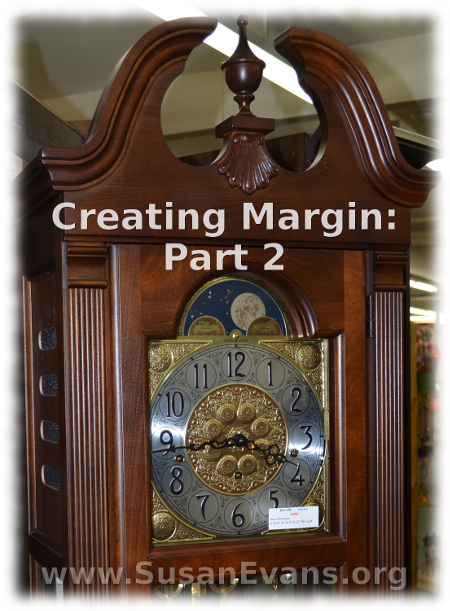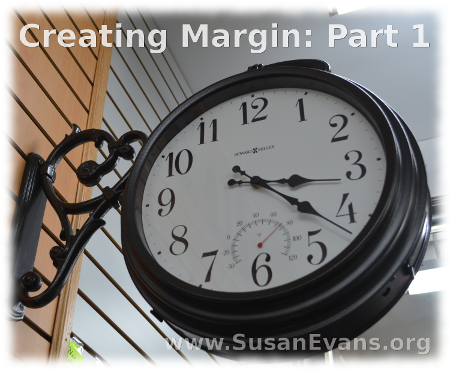“Fatigue, studies suggest, often has its source in emotional rather than muscular or cardiovascular exhaustion…” – Richard A Swenson, author of Margin.
Are you at a point in your life where you are so tired that sleep doesn’t help? Maybe you’ve been in negative margin status for so long that you forgot what it feels like to be normal. Wouldn’t it be great to feel clear-headed and awake?
“Does anyone feel clear-headed and awake?” asked my sister. “That sounds nice. It sounds too good to be true.” My sister made this statement during a conversation with me ten years ago, back when she was single and had no responsibilities. I was pregnant in the first trimester of my third pregnancy. I had a 12-month-old baby who kept pulling over my parents’ Christmas tree and rummaging through the trash. I had a 2 1/2 year old who had trouble taking naps with his younger brother in the same room. I felt foggy in my mind every day, and I wanted to puke every time I smelled coffee.
Do any of us ever rest properly? Do we put unnecessary pressure in our lives through too much activity? The book Margin lists lots of practical ways to restore margin (and rest) into our lives. Here are some of my favorites, in my own words:
- Drink more water, eat more leafy green foods, and sleep 8 hours a night.
- Cultivate friendships that uplift you.
- Laugh more.
- Have a healthy hope for your future.
- Spend less time in front of the television.
- Don’t be afraid to say no. “If there are one hundred good things to do and you can only do ten of them, you will have to say no ninety times,” the author says.
- Unplug from technology occasionally.
- Don’t live beyond your means financially. Be content with what God has given you.
- Plan for free time. (Block off sections of the calendar to intentionally do nothing.)
The author also mentions enjoying anticipation of an event, and then relishing the memories of that event. Because our schedule is so full, we don’t have time to look forward to an event. We have no time to think fondly back on an event that was highly anticipated. Half the fun is looking forward to an event. If you have no down time, you can’t feel that anticipatory excitement. The event itself is just rushed through to cram in another activity. This is no way to live. Let’s all take a deep breath and live the life that God has called us to live.







